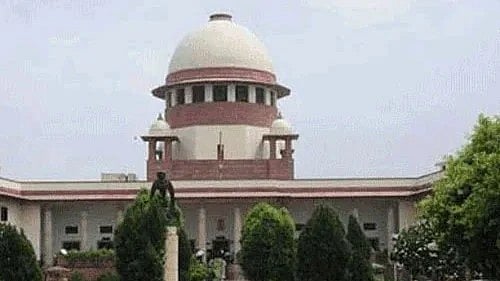
The Supreme Court of India
Credit: PTI Photo
New Delhi: The Supreme Court on Thursday said mere absence of written grounds does not ipso facto render the arrest illegal, unless it results in demonstrable prejudice to the accused or denial of a fair opportunity to defend.
A bench of Justices J B Pardiwala and R Mahadevan said the constitutional and statutory framework mandated that the arrested person must be informed of the grounds of arrest but neither provision prescribes a specific form or insists upon written communication in every case.
Written and individualised grounds are not an inflexible requirement in all circumstances, the court declared.
In its judgment setting aside the bail granted to Kannada actor Darshan and others, the court said that delay in furnishing the grounds of arrest cannot, by itself, constitute a valid ground for grant of bail.
The court pointed out judicial precedents have clarified that substantial compliance with these requirements is sufficient, unless demonstrable prejudice is shown.
"While Section 50 CrPC is mandatory, the consistent judicial approach has been to adopt a prejudice-oriented test when examining alleged procedural lapses. The mere absence of written grounds does not ipso facto render the arrest illegal, unless it results in demonstrable prejudice or denial of a fair opportunity to defend," the bench said.
The Karnataka High Court in its order on December 13, 2024 relied heavily on the alleged procedural lapse as a determinative factor while overlooking the gravity of the offence under Section 302 IPC and the existence of a prima facie case, it said.
"No material has been placed on record to establish that any prejudice was caused due to the alleged procedural lapse. In the absence of demonstrable prejudice, such as irregularity is, at best, a curable defect and cannot, by itself, warrant release on bail," the bench said.
The court held the High Court's reliance on Pankaj Bansal and Prabir Purkayastha judgments is misplaced, as those decisions turned on materially different facts and statutory contexts.
"The approach adopted here is inconsistent with the settled principle that procedural lapses in furnishing grounds of arrest, absent prejudice, do not ipso facto render custody illegal or entitle the accused to bail," the bench said.
